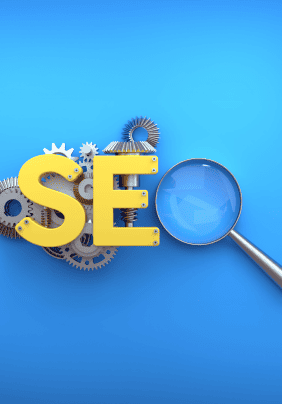By now you should know that having a technically strong and effective website is the basis of digital marketing success. You can create the best-looking, most aesthetically pleasing website in the world, but if you forget about the technical details it’s not going to work for your target audience or for Google.
So, in today’s blog, we will explore the technical foundations of a strong website and how you can improve yours for greater results.
What is SEO Onpage
When we talk about a technically sound website, we’re essentially talking about all the critical technical elements that make up your site, also known as the onsite or on-page SEO. This is the process of optimising your website and web pages for search engines and users and includes optimising search intent, title tags, meta information, internal links and URLs, essentially all the information that appears on the page.
Here’s a closer look at why these components are integral to your website’s success:
- Google’s got to be able to crawl it: and find all the information on the site. That includes all the sitemaps and robot files, title tags, meta descriptions, etc.
- It’s got to load quickly: If it loads slowly, Google is going to penalise you just as your target audience will. Your audience won’t wait long for your page to load before clicking off, so it has to load quickly.
- Content needs to be optimised: You need to write strong headings and descriptions that are enhanced with the keywords that you want your target audience and Google to find and rank you for.
- Navigate easily: You also need to make it easy for your audience to navigate through your site and find all the relevant information with clear links and CTAs throughout.
- Optimised for mobile: With more than 50% of traffic now on mobile devices, you need to have a well-optimised site for all types of devices (and once again Google rewards you for all this).
The Importance of Technical Onsite Requirements
While investing in these technical requirements may seem costly and time-consuming, we promise it will pay off in the end. These technical aspects are the foundations that keep your website functioning smoothly and provide a seamless experience for your audience.
These onsite SEO elements are also essential for boosting your rankings on search engines as they crawl your website and use these terms to determine whether your website and webpages match a user’s search terms and intent. Without these clear elements, Google won’t know whether to show your page for a relevant search term, but with them, they’ll continually send high-quality matches your way.
Here are some tips to consider when enhancing your technical onsite information:
Produce Content that Marries Up to Keywords
The first tip is to ensure that your content always aligns with the keywords that you want to target. You need to incorporate these keywords and phrases naturally to provide value to your target audience and help search engines sort your content and improve your online visibility.
For the best results, it’s best to start by completing extensive keyword research to ensure that you have an extensive list of the most relevant keywords and phrases for your target audience.
Use Engaging Meta Titles & Descriptions
The next tip is to focus on crafting engaging meta titles and descriptions for each of your pages. These elements serve as your website’s first impression to users and search engines, giving them a clear idea of what your page is about and why they should click on it.
When writing your titles and descriptions it is important to include your keywords and a strong call to action to enhance your content for Google and encourage users to engage.
Effectively Use Headings & Subheadings
Another good practice when creating content for your website is to break it down into manageable chunks with headings and subheadings. By grouping your content into sections with clear and relevant headings and subheadings you make it easier for readers to digest your content, while also making it easier for search engines to index your content.
It’s also good practice to use keywords in your headings to give Google (and your audience) more information about the intent of your content.
Optimise URLs
Next, crafting clear, concise and descriptive URLs can also help contribute to user experience and SEO. Readers prefer clear URLs that are relevant and clearly describe the content of the page, and search engines are no different. Clear URLs make it much easier to index your content.
Including random numbers, dates and full sentences can confuse both Google and your users, instead, focus on including the pages’ keywords and key focus.
Include Internal & External Links
Finally, linking to other relevant information, both internally and externally, is a great way to help users and search engines navigate and index your website. Internal links are great for improving navigation and helping users find more information on relevant topics and keeping them on your site longer. External links, on the other hand, are great for building trust and adding authority to your site.
While there are debates about the use of external links as they take users away from your site, they have their place. External links are good for providing more information that can encourage users to trust you. However, it is important to be careful about how you use them, as the goal is to keep users on your site.
Use Technical Onsite SEO for Improved Digital Marketing Results
In conclusion, focusing on this technical onsite SEO information can help you build a solid foundation for your website. All of these aspects are designed to help make your website more user-friendly and help search engines to successfully rank your site.
So, while they may seem time-consuming in the beginning, it will all pay off in the end. By investing in these technical elements and maintaining them, you’ll be effectively positioning your website and business for long-term success.






